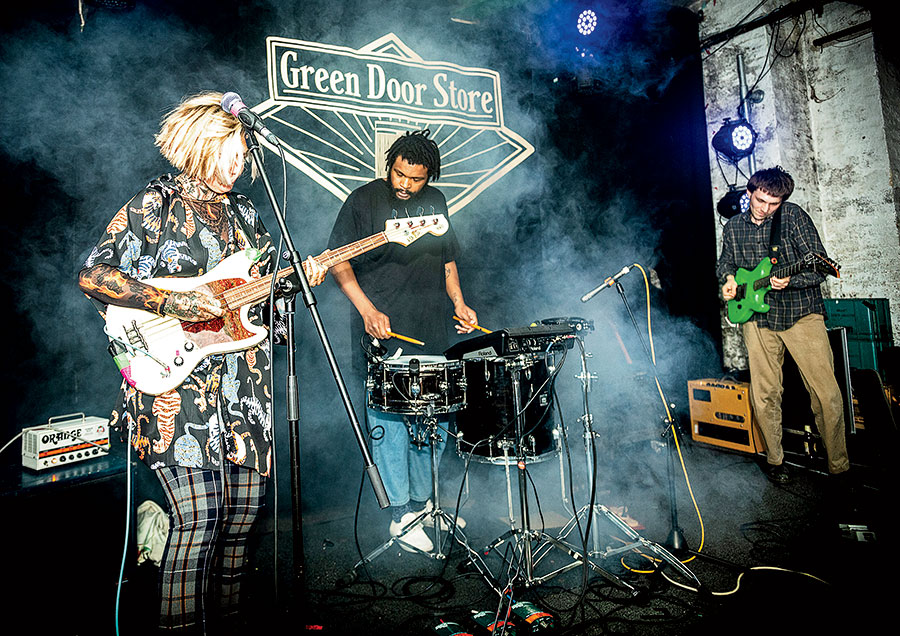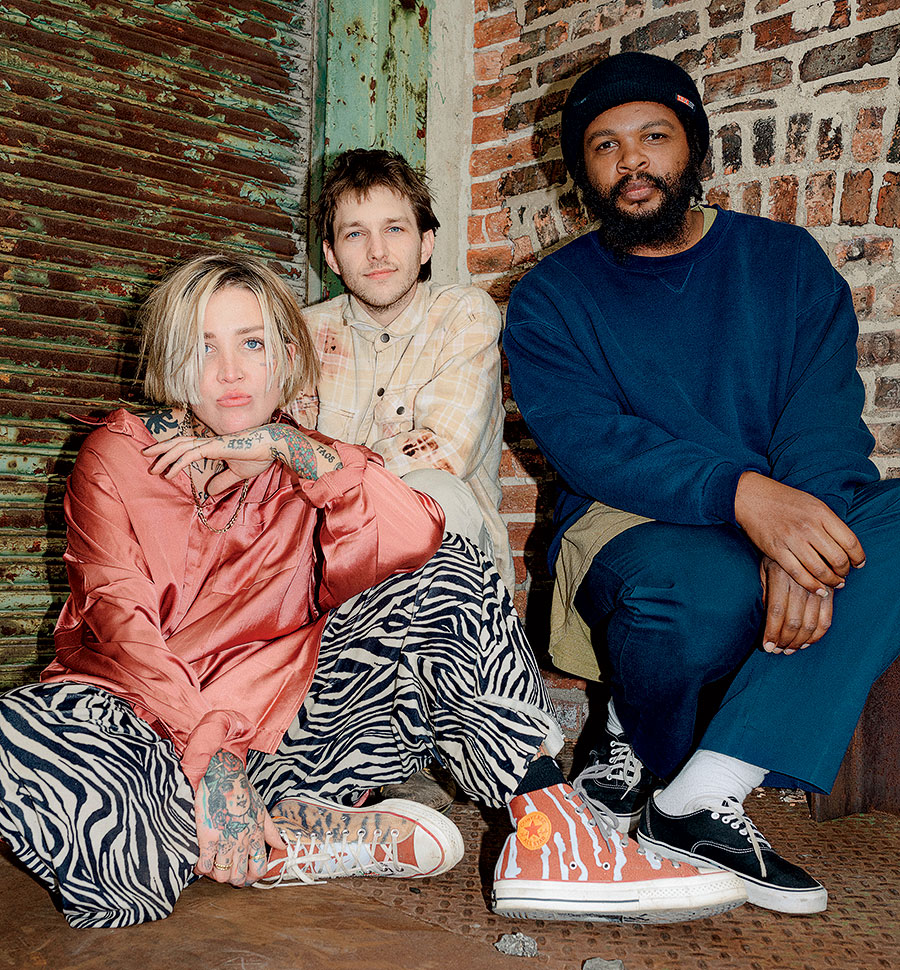Jason Balla and Emily Kempf, two-thirds of the trio Dehd, meet me one afternoon over Zoom, right before they’re to start rehearsals for their first full-scale tour since the pandemic began. They are hitting the road in support of their new album, Blue Skies, which features more of the post-punk music (or is it post-post-punk by this point?) — by turns moody and poppy, occasionally suggesting a ’50s girl-group vibe — that has gained them a growing following and led to their recent signing with the acclaimed indie label Fat Possum. For two months they will be touring the country and the U.K. before returning home for a June 4 show at Metro.
On this afternoon, though, Balla, who plays guitar and sings, is still in his Logan Square apartment, while Kempf, the bassist and the band’s other primary vocalist, is staying with drummer Eric McGrady at his Humboldt Park place, newish tattoos dotting the sides of her face to join a body that, neck to ankles, is famously (at least in DIY rock circles) covered with them. She arrived in town the night before from Los Angeles, where she now lives part time; her other home is no longer in Chicago but in an off-the-grid, sustainable adobe “earthship” in the New Mexico high desert. “It’s called the Greater World Earthship Community,” Kempf says. “I watched a documentary on the lead architect 10 years ago and never forgot it. Then I did an academy where you learn how to build the earthship and live on the land.”
As for McGrady? He hates interviews, as everyone tells me, but I catch a glimpse of him in the background as he reminds Kempf: It’s time to finish talking and go rehearse.
Blue Skies is the band’s most expansive music yet, often danceable, with joy emanating even from songs of searching and unfulfilled love. “It’s sort of about the conflicting of optimism with the backdrop of just trying to put your head down and get through the world,” Balla says of the beautiful, slow-tempo opener, “Control,” but he could easily be describing the album as a whole.

Dehd grew out of Chicago’s fertile DIY music scene in the mid-2010s. The three began playing together at unlicensed venues, like the now-shuttered Animal Kingdom, a private house in Avondale. “I had just moved to Chicago, so I was trying to meet people and I was going to all the shows, so I was there in social butterfly mode,” says Kempf, who was raised in Atlanta. “Jason was playing a show, and Eric was guarding the beer. That’s where we all met.”
Balla at the time was in the popular indie band NE-HI. He’d grown up in Buffalo Grove, interning at the Empty Bottle during high school. “After school, I would drive immediately to the city,” he says. “I’d sit in crazy rush-hour traffic and blast CDs in my car and then hang posters for a couple of hours.” Along with starting Dehd around 2016, he and Kempf began a relationship. That would end, but the band continued, with the breakup fueling much of their 2019 sophomore album, Water. But it was their third album, Flower of Devotion, released in the summer of 2020, that met the moment. Even if the breakout song “Loner” isn’t pandemic specific, it felt cathartic to hear Kempf croon over and over, “To be a loner, oh, oh, oh.”
As well as Flower of Devotion was received — an 8.3 rating from Pitchfork and a spot on Esquire’s list of the year’s 30 best albums — the inability to tour slowed the band’s momentum. Now they’re headlining their biggest shows yet; the week after their Metro show, they’ll play the music festival Governors Ball in New York City. But Kempf says Dehd’s success comes in part from staying somewhere between pragmatic and Zen about their fate: “We treat our band the way we treat our songs — like a very loose garment. ‘Well, we hope this happens, but it might not.’ We’re just going to keep showing up.”



